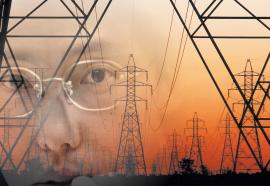China's Quest for Energy
Cooperation and coordination will help the United States avoid an energy-policy confrontation.
China is seeking to acquire resources and infrastructure from all over the world, from the oil fields of Venezuela to new shipyards for building liquefied natural gas tankers in Shanghai. But the country’s acquisition pattern puts it on a collision course with the United States and the rest of the world.




